Blog
why is it called pickleball
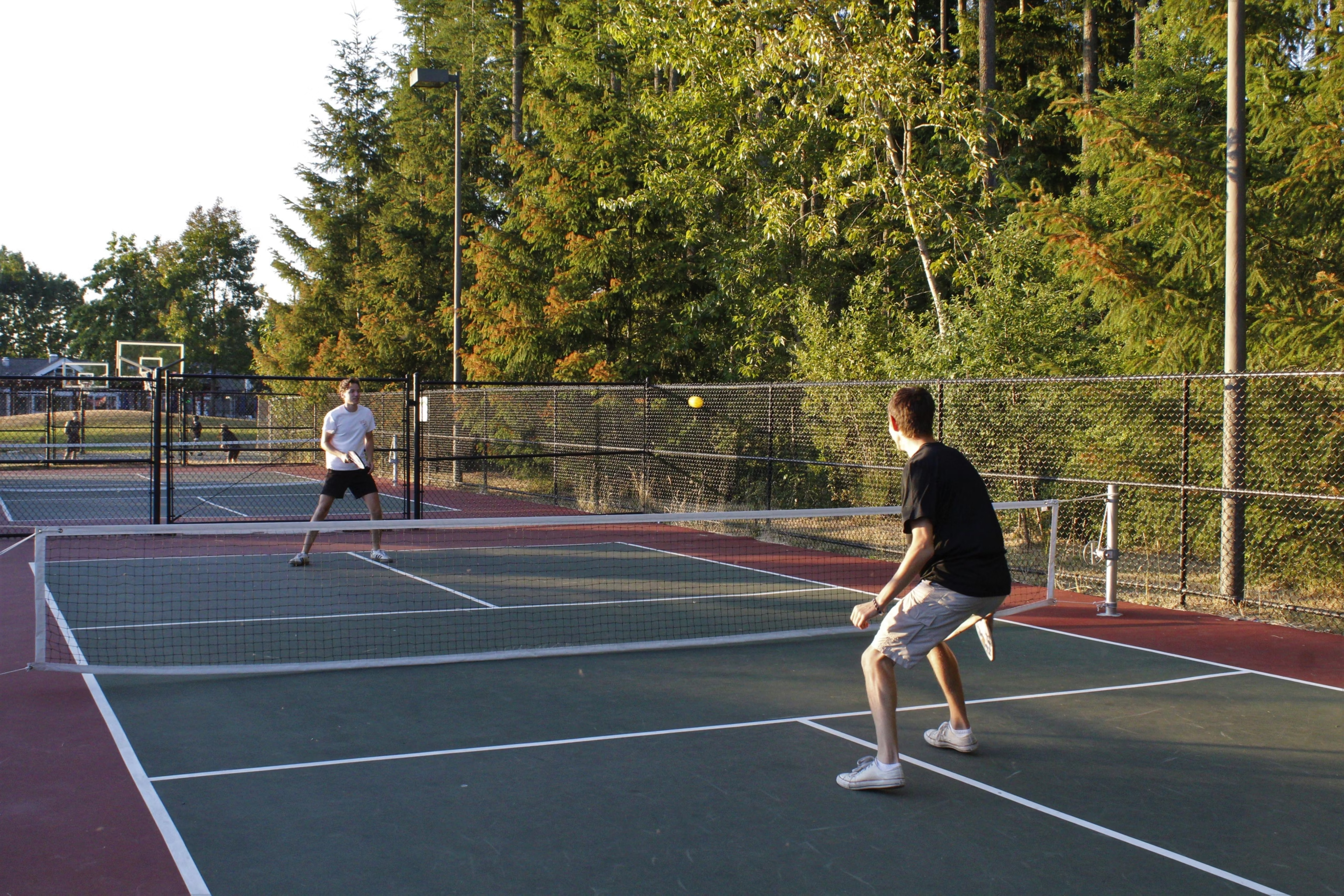
The Curious Case of Pickleball: Unraveling the Name Behind the Game
In the vibrant world of sports, where names often evoke images of their essence—think basketball or swimming—one game stands out with a title that raises eyebrows and prompts questions: pickleball. With its unique blend of elements from tennis, badminton, and table tennis, this rapidly growing sport has captured the hearts of players and spectators alike. Yet, amidst the cheerful chaos of whacking wiffle balls and darting across courts, a curious inquiry lingers: why is it called pickleball? This article delves into the origins and evolution of the name, exploring whimsical stories and factual explanations that contribute to the intriguing identity of this beloved game. Join us as we peel back the layers and uncover the delightful history behind pickleball’s peculiar moniker.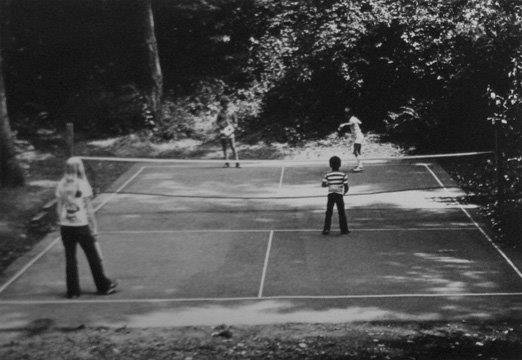
The Origins of the Name and Its Connection to the Game
The amusing and somewhat quirky name ”pickleball” has a fascinating backstory that intertwines with the game’s inception. Invented in 1965 by three fathers—Joel Pritchard, Bill Bell, and Barney McCallum—on Bainbridge Island, Washington, the game was originally intended to keep their children entertained during the summer. The origins of the name are often attributed to the Pritchard family’s dog, Pickles, who would chase after the balls during their impromptu matches. This playful association provided a light-hearted touch to the game, which combines elements of tennis, badminton, and ping-pong.
However, the name “pickleball” has also been linked to the term “pickle boat,” which refers to the last team to return with their catch in crew races. This denotes a mixed collection of players and reflects the game’s eclectic nature, drawing players from various backgrounds and skill levels. The blend of these stories adds to the unique charm of pickleball, making it more than just a sport—it’s a community experience that celebrates participation and fun, much like the original intent of its creators. Here’s a brief overview of the name’s evolution:
| Origin | Description |
|---|---|
| Dog Pickles | The Pritchard family’s dog that would chase after the game balls. |
| Pickle Boat | Referring to a mixed crew in racing, symbolizing the game’s mixed nature. |
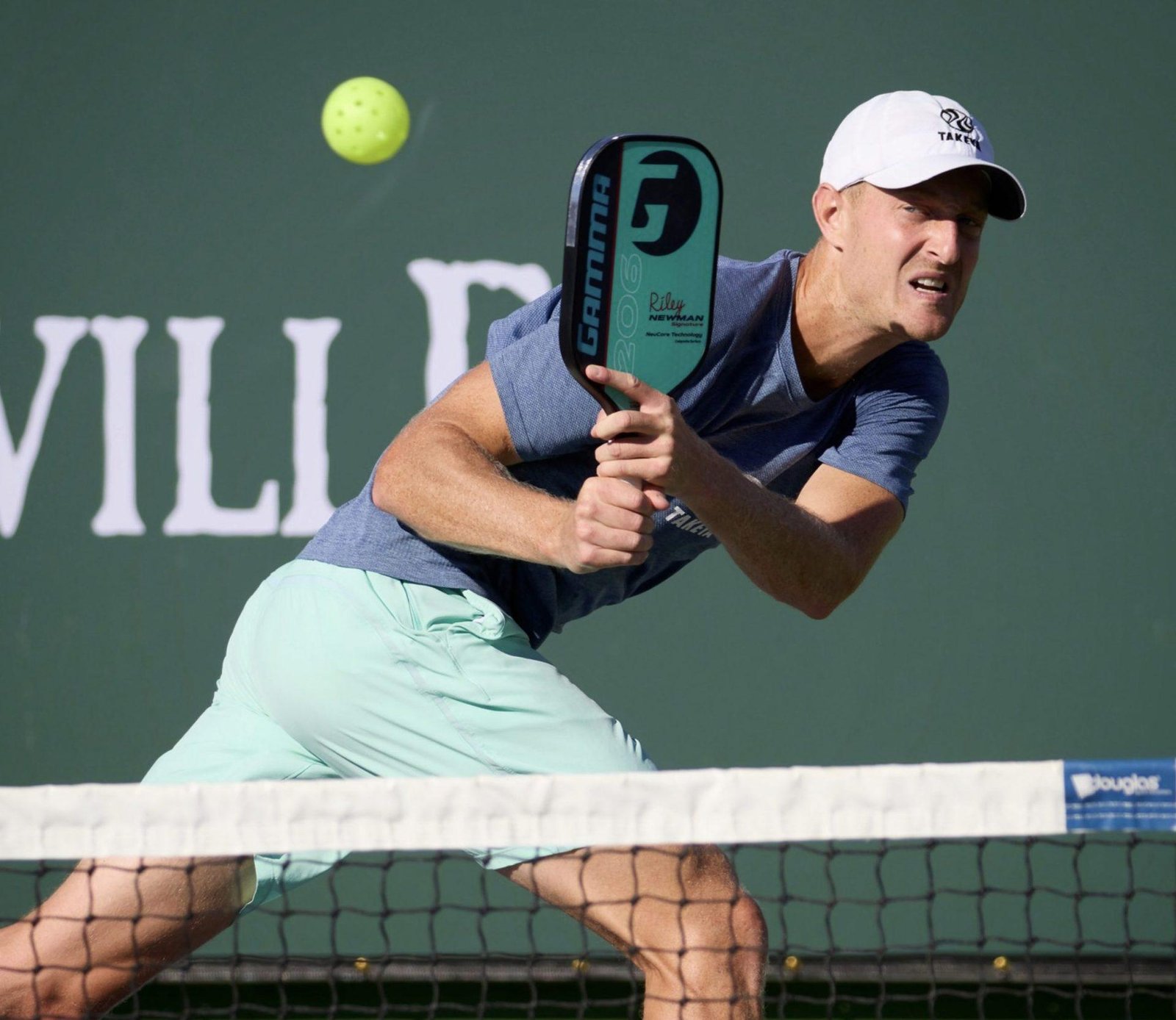
Exploring the Myth and Reality Behind Pickleballs Naming
The origin of the name “pickleball” is steeped in both myth and reality, reflecting the light-hearted nature of the game itself. One popular tale claims that the sport was named after a dog belonging to one of the game’s inventors, Joel Pritchard. According to this story, the playful pup, Pickles, would chase the balls and hide them in the bushes, leading to the whimsical name. However, this account is often disputed, with some suggesting that the name derives from the term “pickle boat,” which refers to a crew of oarsmen who are picked from different teams. The name serves as a nod to the game’s mixed-origin nature, combining elements from tennis, badminton, and table tennis into a deliciously unique concoction.
Notably, the truth lies somewhere in between these two narratives. The creators of pickleball were unwaveringly adamant about their desire to create a sport that was fun and inclusive. This influenced both the playful spirit of the game and the quirky choice of name. As the sport gained popularity, pickleball clubs and enthusiasts embraced these backstories, celebrating the name’s unusual charm. While many continue to argue over its true origin, one thing remains clear: the name “pickleball” captures the essence of the game—the joy of play, community, and a touch of playful absurdity. Here’s a quick comparison of the two popular theories:
| Theory | Description |
|---|---|
| Dog Named Pickles | The game is named after a playful dog, who would fetch and hide the balls. |
| Pickle Boat | The name is derived from a term in rowing, reflecting the game’s mixed origins. |
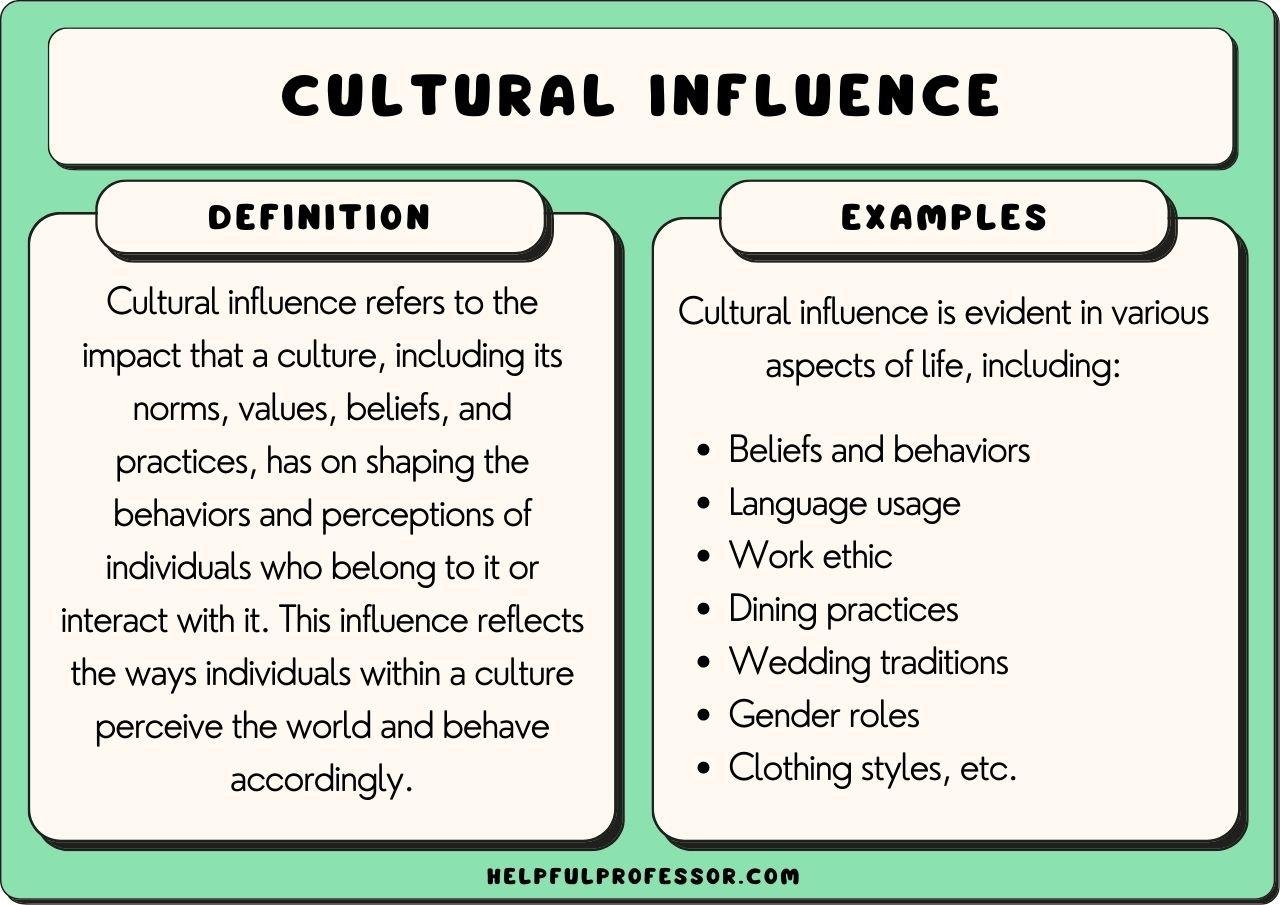
Cultural Influences: How Different Regions Shaped the Terminology
The origins of the term “pickleball” are steeped in a delightful blend of regional influences that reflect the rich tapestry of American culture. Initially, the sport was created in 1965 as a backyard pastime on Bainbridge Island, Washington. The story goes that the game was named after a dog named Pickles, who had a penchant for chasing after stray balls. However, there’s another layer to this tale—the sport’s unique combination of tennis, badminton, and ping-pong drew comparisons with the idea of a “pickle” jar, where various influences are mixed together. This playful imagery captures the essence of how diverse regional sports can amalgamate to create something entirely new and engaging.
These cultural influences can be further examined through various regional adaptations of the game, which align closely with local traditions and terminologies. For instance, in the Southwest, players emphasize *community bonding* and *outdoor gatherings*, often using colloquial phrases that reflect the local lifestyle. Other regions might focus on *competition* and *athleticism*, shaping the vernacular used around the sport. Here’s a quick look at some terms and regional adaptations:
| Region | Terminology |
|---|---|
| Pacific Northwest | Pickle Rally |
| Southwest | Paddle Jam |
| Midwest | Paddle Fest |
| New England | Ball & Paddle Gathering |
This diversity not only highlights how local culture influences terminology within the sport but also showcases the regional pride that players take in their unique adaptations, ultimately enriching the pickleball experience across the nation.
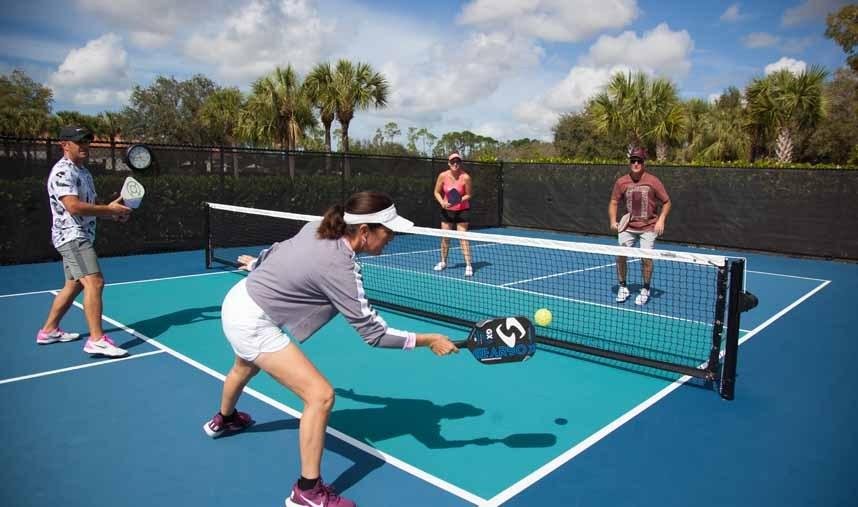
Recommendations for Embracing the Spirit of Pickleball in Your Play
To truly embrace the essence of pickleball, it’s important to focus not only on the game itself but also on the community and camaraderie it fosters. Here are a few ways to enhance your play and connect with others:
- Engage with Fellow Players: Whether you’re at the local court or part of a larger tournament, make it a point to connect with other players. Sharing experiences and techniques can not only improve your game but also strengthen relationships within the community.
- Cultivate a Positive Attitude: Approach every match with a mindset geared towards fun and learning. Celebrate both victories and defeats, as each experience contributes to your overall growth as a player.
- Participate in Local Events: Join local pickleball leagues, charity tournaments, or social gatherings. These events are great opportunities to meet new people and enjoy the sport in a relaxed environment.
Additionally, incorporating the spirit of pickleball into your personal practice can elevate your overall experience. Consider these engaging methods to enhance your skills and enjoyment:
| Practice Techniques | Benefits |
|---|---|
| Consistent Drills | Improves shot accuracy and strengthens skills |
| Playing with Different Partners | Diversifies your game and teaches adaptability |
| Watching Tutorials | Enhances tactics and strategies for competitive play |
Q&A
Q&A: The Origins of the Name “Pickleball”
Q: What is pickleball?
A: Pickleball is a lively paddle sport that combines elements of tennis, badminton, and table tennis. Played on a court with a net, players use paddles to hit a lightweight plastic ball back and forth. It’s often hailed for its accessibility and fun, attracting players of all ages.
Q: Where did the name “pickleball” originate?
A: The name “pickleball” has a couple of intriguing stories attached to it, leading to heated debates about its true origin.
Q: What is the most popular theory behind the name?
A: The most commonly accepted theory suggests that the name comes from the family dog of one of the sport’s co-founders, Joel Pritchard. When the game was first created in 1965, the Pritchard family dog, named Pickles, would chase after the ball whenever it was hit out of bounds. The playful pup inspired the quirky name that has stuck ever since.
Q: Is there an alternative explanation for the name?
A: Yes, there is another theory! Some people believe that the name derives from the term “pickle boat,” which refers to the last boat returned with the leftover crew members in crew racing. The implication is that pickleball was a mix of different sports, much like the diverse rowers in a pickle boat. This explanation embraces the sport’s eclectic origins, combining various elements into something new and exciting.
Q: Which story do the sport’s founders subscribe to?
A: Both explanations have their proponents, but the Pritchard family consistently highlights the dog anecdote. According to them, Pickles, the playful pup, is the true inspiration behind the name. As with many legends, the fun lies in the debate as much as in the truth.
Q: Does the name affect the perception of the sport?
A: Interestingly, it does! The playful name often intrigues newcomers and can make the sport seem more approachable and lighthearted. This unique moniker has helped pickleball gain popularity, transforming it into a beloved pastime across various communities.
Q: So, is “pickleball” the final name?
A: Absolutely! Despite the origins being slightly murky, “pickleball” has made its mark. It captures the essence of the fun, friendly, and inclusive nature of the game itself, making it memorable for everyone who picks up a paddle.
Q: What can we take away from the name “pickleball”?
A: Ultimately, the name “pickleball” reflects the sport’s spirit—playful and inclusive. It may be a quirky name, but it symbolizes joy, community, and the chance to engage with friends and family on the court. Whether you’re a seasoned player or a curious newbie, pickleball invites everyone to come and play.
Future Outlook
In the vibrant world of sports, where every game hums with its own stories, the origins of the name “pickleball” stand out as a charming anecdote that adds to the game’s allure. The blend of tennis, badminton, and ping-pong, alongside its quirky moniker, invites players and enthusiasts to embrace both the competitive spirit and the fun that pickleball embodies. Whether it’s named after a beloved family dog or a nod to the challenges of combining elements from various games, the name evokes images of leisure and joy, perfectly encapsulating the essence of this rapidly growing sport. As players continue to rally on courts across the globe, perhaps the true beauty of pickleball lies not just in its unusual name but in the connections it fosters and the joy it brings to all those who pick up a paddle. So, the next time you step onto the pickleball court, remember that the name carries with it a rich history of creativity and camaraderie, and a promise of endless fun.












